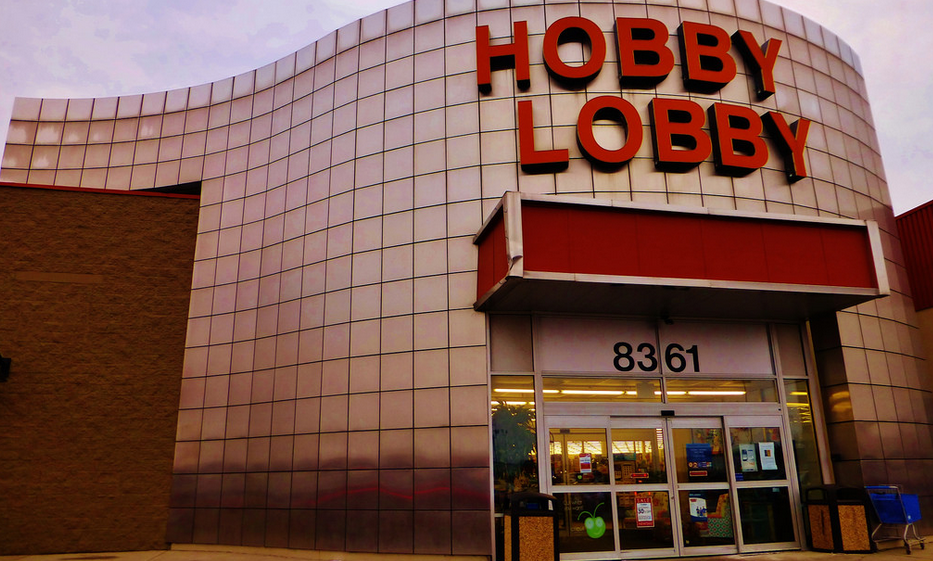What Does The Hobby Lobby Ruling Mean For Consumers?
This morning, the Supreme Court issued its ruling on one of the most-watched cases of the season, Burwell v. Hobby Lobby. The issue was employer-provided healthcare, and what companies are required to provide under the Affordable Care Act. But the broader issues brought up by the ruling have implications beyond one craft store’s benefits package.
The Court ruled 5-4 in favor of craft chain Hobby Lobby and cabinet-maker Conestoga Wood Specialties, finding that certain kinds of companies can claim religious objection to providing employees contraceptive health care as part of their benefits package.
Specifically, the Court ruled that closely-held corporations cannot be required to provide contraceptive coverage to their employees (other treatments that occasionally meet with religious objections, like vaccines and blood transfusions, were specifically left out of the narrow ruling). A closely-held company is, basically, one that is not publicly traded, but instead has the majority of its stock owned by an individual or small group of individuals, like a family.
Closely-held corporations are about 90% of U.S. businesses and account for over half of private-sector employment in the country. Hobby Lobby is a large company, with close to 600 stores and 14,000 employees — but the chain remains privately owned, and not publicly traded.
There are already exemptions in the law — not only the ACA, but also a whole host of other laws — to cover religious organizations. Churches were already exempt from the ACA before today, as The Atlantic explains. What the Supreme Court did today was to allow for-profit, secular corporations owned by religious individuals to claim the same exemptions as churches:
The Court found that private companies have the same rights to religious objections as non-profits. Last fall, the government finalized its process for granting exemptions to the Affordable Care Act’s birth control mandate for non-profit organizations — religious universities, convents, and charities have to sign a form certifying that they object to paying for birth control, and then the government takes care of paying for it from there. It’s likely that the same sort of standard will apply to private companies: If they believe that providing coverage of certain forms of birth control violates their religious beliefs, they may not have to pay for that coverage, but the government still can.
Hobby Lobby and Conestoga weren’t alone; over 70 companies altogether had filed lawsuits over the contraception mandate, and many were still pending before this morning’s ruling. Although the Court only announced its decision a few hours ago, eligible businesses are already putting in motion their plans to cut back on benefits. The Wall Street Journal reports on several that were eagerly waiting for this morning’s ruling before hitting the kill switch on their offerings:
[St. Louis-based O’Brien Industrial Holdings] provided health coverage for its 100-plus employees but didn’t cover birth control and the morning-after pill, thanks to an injunction granted after the company filed suit. Had the court ruled against Hobby Lobby, Mr. O’Brien said he would probably have sold half the company to keep his total head count under 50 employees, which would have exempted him from having to provide health coverage.
Politico also digs into the future implications of the ruling, noting that Hobby Lobby “marks the first time that the Supreme Court has allowed companies the ability to declare a religious belief — a decision that could reverberate far past the Affordable Care Act to other laws and issues.”
Politico notes that Justice Ruth Bader Ginsburg said as much in her dissent, as Consumerist reported earlier, pointing to the “startling breadth” of the ruling and saying that it opened the door to let corporations “opt out of any law (saving only tax laws) they judge incompatible with their sincerely held religious beliefs.” Other organizations, both religious and secular, have previously expressed similar concerns.
Politically speaking, reactions in Washington are playing out exactly as anyone would expect. The Obama administration and Congressional Democrats are upset about the ruling; Republican lawmakers, meanwhile, are hailing it as a win.
And what of the thousands of employees whose health-care benefits packages now have holes in them, thanks to their employers’ religious beliefs? The government should take care of them, argued the Court. As SCOTUSblog explains, the “middle man” — either the insurer or a government subsidy — can step in to take over the cost of contraceptive coverage if an employer files a formal religious exemption.
At least, that’s what’s been worked out so far for religious groups, and experts expect it to apply here, too. Some religious organizations object to filing the exemption paperwork itself, claiming that doing so makes them complicit in employees accessing those services anyway. But that objection, as SCOTUSblog points out, is a legal case for another day.
Want more consumer news? Visit our parent organization, Consumer Reports, for the latest on scams, recalls, and other consumer issues.


